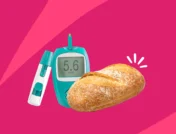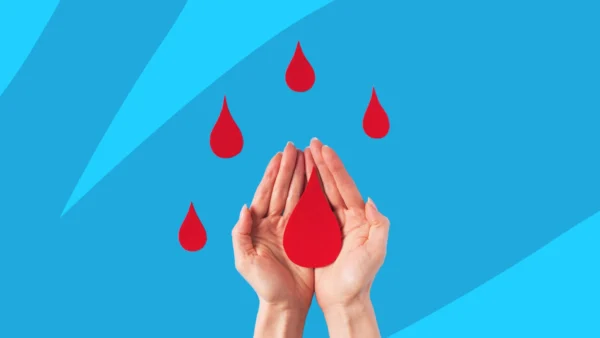Strep throat is one of the most common reasons for a sore throat. About 5% to 15% of sore throats in adults and 20% to 30% of sore throats in kids are caused by a strep infection, which is caused by group A streptococcus bacteria.
If you or your child has strep throat, you may rush to the doctor to request an antibiotic—but do you actually need antibiotics to treat strep? Are natural treatments for strep throat just as good as a prescription? The short answer is no.
Here we speak with healthcare providers about when medication is needed, some natural ways to soothe your symptoms, and what to know about the risks of antibiotics for strep throat.
Can you get over strep throat without antibiotics?
“You can definitely recover from strep throat without antibiotics,” says Marc J. Grella, MD, a pediatrician at Massachusetts General Hospital. Typically, recovery occurs about eight to 10 days after the symptoms of strep throat—sore throat, fever, headache—first appear. “In fact, most people who get strep throat probably never find out they have it because the pain goes away and they move on,” Dr. Grella says.
The problem is that for a small number of people, untreated episodes of strep throat can lead to complications like:
- Abscesses that form in the tonsils
- Swollen lymph nodes
- Ear infections
- Post-streptococcal glomerulonephritis (a kidney disease) that can lead to kidney failure
- Scarlet fever
- Rheumatic fever, which can affect your heart, skin, brain, and joints
- Streptococcal toxic shock syndrome
These infections occur when the strep bacteria migrates to other parts of your body. Antibiotics treat Group A strep and markedly decrease the risk of complications. While complications are rare, these conditions can be serious. For example, rheumatic fever “is a severe and life-threatening heart condition, which can lead to lifelong disability or death,” Dr. Grella explains. Streptococcal toxic shock syndrome, when the infection spreads to your body’s tissues, can result in hospitalization, and usually requires ICU-level care, says Marc Kai, MD, a primary care provider with Mercy Family Care Physicians in Baltimore.
“The right antibiotics effectively kill the strep bacteria (GABS, or group A beta-hemolytic strep) and very effectively prevent rheumatic fever,” Dr. Grella says. The same goes for other complications.
While most strep infections go away on their own, most healthcare providers prescribe antibiotics to help decrease the chance of serious complications. Using antibiotics can also reduce the number of days that you are sick so that you can get back to work and other activities sooner without worrying about spreading strep to others, explains Dr. Kai. Antibiotics also decrease the amount of time that you are contagious.
Strep throat treatment without antibiotics
There is no natural method that can protect you from complications from strep. “Antibiotics are really the best and only effective medicine for avoiding complications, as the infection is caused by a bacteria and there aren’t really any natural remedies for this type of throat infection,” Dr. Kai says.
That being said, there are some natural ways to relieve some of your sore throat symptoms until you recover.
Natural remedies
According to Dr. Kai and Raj Dasgupta, MD, a board-certified physician in pulmonology, you can minimize the discomfort from a sore throat with home remedies and dietary changes by:
- Eating cool or cold foods, like popsicles to numb the throat
- Swallowing a spoonful of honey
- Drinking purees or smoothies to avoid irritation from hard or crunchy foods
- Staying well-hydrated
- Gargling with saltwater
- Avoiding irritants such as smoke, pollution, and common allergens
- Using a humidifier
While it won’t help your throat, getting plenty of rest can help you bounce back from an infection more quickly.
Over-the-counter medications
If your sore throat is causing a lot of pain, try throat lozenges from the pharmacy or over-the-counter (OTC) pain relievers. “If you don’t mind taking additional medicines, ibuprofen or acetaminophen are also effective at reducing pain so you can keep giving your body the energy and hydration through food and drink that it needs to recover,” Dr. Kai says.
How to know when antibiotics are necessary
The best way to figure out if antibiotics are necessary is to see a healthcare professional for an exam and a strep test. You should visit your provider if you have any of the following symptoms:
- Severe sore throat pain
- High fever
- Difficulty swallowing
- Swollen lymph nodes
- Red spots on the roof of your mouth
- Yellow or white patches on the back of the throat or on your tonsils
Although these signs of strep throat are not enough for a diagnosis, it’s a good indicator you should be seen by a professional for a throat swab or rapid strep test. Getting a strep throat culture helps confirm if your sore throat is caused by strep, which is a bacterial infection. If it is negative, chances are your symptoms are from a virus like the common cold. Sore throats caused by viruses do not require antibiotics because antibiotics do not treat viruses, only bacteria. If your throat swab comes back positive for Group A strep, then have a discussion with your healthcare provider about whether antibiotics are appropriate for your situation.
Penicillin and amoxicillin are the two main antibiotics used to treat strep throat, according to the National Library of Medicine. For those who are allergic to penicillin, clindamycin, clarithromycin, or cephalosporin would be prescribed instead.
What are the risks of taking antibiotics for strep throat?
The risks of taking antibiotics—for any reason—are side effects and the risk of antibiotic resistance. This is why people may wonder whether strep throat can be effectively treated without them.
According to the Centers for Disease Control and Prevention (CDC), side effects of antibiotics include:
- Rash
- Lightheadedness
- Nausea
- Diarrhea
- Yeast infections
- Clostridioides difficile, or C. diff, infection
- Allergic reaction, which “can range from itching and minor symptoms all the way to severe causing breathing issues and shock (anaphylaxis),” Dr. Kai says.
If you experience trouble breathing, call 911 for emergent attention.
Beyond side effects and allergies, there is a risk of antibiotic resistance when taking the medication for strep throat. Antibiotic resistance occurs when bacteria are no longer responsive to the medication. One of the common causes of antibiotic resistance is the overprescription of antibiotics, such as when people are prescribed antibiotics for a viral infection like the common cold or flu. However, these days healthcare providers tend to weigh the risk of antibiotic use more carefully than in the past. Most physicians would agree that the risks of antibiotic resistance are small and antibiotics should be given for strep-positive sore throat.
“You should also only take antibiotics when they are necessary and prescribed by a healthcare professional,” Dr. Dasgupta says. When they are prescribed, be sure to use antibiotics as directed—finish the complete prescription, even if you start to feel better before the course is finished. When patients do not finish an antibiotic prescription, bacteria still present in the body is able to mutate and become antibiotic-resistant.
Your healthcare provider can provide guidance on how to minimize your risk of side effects and antibiotic resistance if you do need medication to treat your infection.
Sources
- Streptococcal pharyngitis, StatPearls (2023)
- Strep throat: All you need to know, CDC (2023)
- Streptococcal toxic shock syndrome: All you need to know, CDC (2022)
- Antibiotics aren’t always the answer, CDC
- How antimicrobial resistance happens, CDC (2022)











